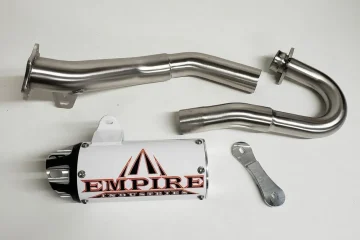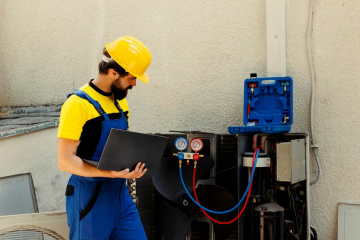The importance of efficient filtration cannot be overstated. Whether it’s in manufacturing, processing, or wastewater treatment, industrial filtration systems play a critical role in removing contaminants, improving product quality, and ensuring regulatory compliance.
When selecting industrial filtration systems, it’s essential to consider key features that maximize performance, reliability, and cost-effectiveness. This article will explore the key features to look for in industrial filtration systems and how they contribute to operational efficiency and productivity.
1. Filtration Capacity and Efficiency
One of the most critical features to consider in industrial filtration systems is filtration capacity and efficiency. The system’s ability to remove contaminants and particles from the process fluid or wastewater directly impacts product quality, equipment performance, and operational costs.
Look for filtration systems with high filtration efficiency ratings and a robust capacity to handle varying flow rates, particle sizes, and contaminant concentrations. Choose filtration media and technologies tailored to the specific application requirements, whether it’s microfiltration, ultrafiltration, or reverse osmosis, to achieve optimal filtration performance and maintain product integrity.
2. Scalability and Flexibility
Scalability and flexibility are essential features in industrial filtration systems, especially in dynamic manufacturing environments with changing production demands and process conditions.
Choose filtration systems that offer modular designs and configurable components to accommodate future growth, upgrades, or process changes without significant downtime or reconfiguration.
Look for systems that allow for easy scalability by adding or removing filtration units, adjusting filtration parameters, or integrating additional filtration stages as needed to meet evolving production requirements and maintain operational efficiency.
3. Durability and Reliability
Industrial filtration systems operate in harsh and demanding environments, exposed to high temperatures, corrosive chemicals, and abrasive particles. Therefore, durability and reliability are crucial features to look for when selecting filtration equipment.
Choose systems constructed from robust materials such as stainless steel, corrosion-resistant alloys, or advanced polymers that can withstand harsh operating conditions and prolonged use without compromising performance or integrity.
Additionally, consider filtration systems with reliable components, seals, and gaskets that minimize the risk of leaks, failures, and downtime, ensuring continuous operation and production uptime.
4. Ease of Maintenance and Serviceability
Maintenance and serviceability are key considerations in industrial filtration systems to minimize downtime, optimize productivity, and reduce operating costs. Look for systems with user-friendly designs and intuitive controls that simplify operation, monitoring, and maintenance tasks.
Choose filtration systems that offer easy access to filtration media, filter elements, and internal components for routine inspections, cleaning, and replacement. Additionally, opt for systems with built-in diagnostic features, alarms, and remote monitoring capabilities that enable proactive maintenance scheduling, troubleshooting, and predictive maintenance to prevent costly equipment failures and production disruptions.
5. Energy Efficiency and Sustainability
In today’s environmentally conscious world, energy efficiency and sustainability have become integral considerations in industrial filtration systems. Choose systems with energy-efficient motors, pumps, and controls that optimize power consumption and minimize operating costs while reducing carbon emissions and environmental impact.
Look for filtration technologies that maximize resource utilization, minimize waste generation, and support recycling and reuse initiatives to promote sustainability and environmental stewardship.
Additionally, consider filtration systems with advanced process optimization features, such as variable frequency drives (VFDs), automated controls, and real-time monitoring, that optimize energy usage and reduce environmental footprint without compromising filtration performance.
6. Compliance with Regulatory Standards
Compliance with regulatory standards and industry requirements is a critical aspect of industrial filtration systems, especially in highly regulated industries such as food and beverage, pharmaceuticals, and water treatment. Choose filtration systems that meet or exceed applicable regulatory standards, quality certifications, and industry guidelines for product safety, purity, and performance.
Look for systems with validated filtration processes, FDA-approved materials, and documentation of compliance with regulatory requirements to ensure product integrity, traceability, and consumer safety. Additionally, consider filtration systems with built-in validation protocols, quality assurance measures, and audit trails that facilitate compliance with regulatory audits and inspections.
7. Cost-Effectiveness and Return on Investment
While upfront cost is an important consideration, it’s essential to evaluate the long-term cost-effectiveness and return on investment (ROI) of industrial filtration systems. Look for systems that offer a balance between performance, reliability, and total cost of ownership over the equipment’s lifecycle.
Consider factors such as energy efficiency, maintenance requirements, spare parts availability, and operational efficiency when assessing the total cost of ownership. Choose filtration systems that offer competitive pricing, favorable warranty terms, and aftermarket support services to maximize ROI and ensure a positive economic impact on your operations.
Select the Right Filtration System
Industrial filtration systems play a vital role in ensuring product quality, process efficiency, and regulatory compliance in various industrial applications. When selecting filtration equipment, it’s essential to consider key features such as filtration capacity and efficiency, energy efficiency and sustainability, compliance with regulatory standards, and cost-effectiveness and return on investment.
By choosing the right filtration system tailored to your specific application requirements, you can optimize operational performance, minimize downtime, and achieve sustainable growth and success in your industrial operations.




